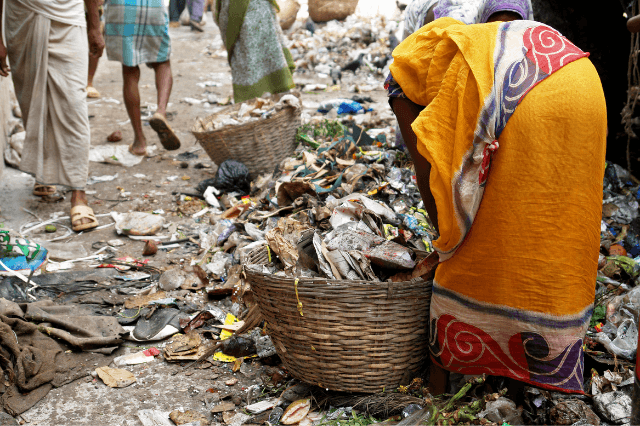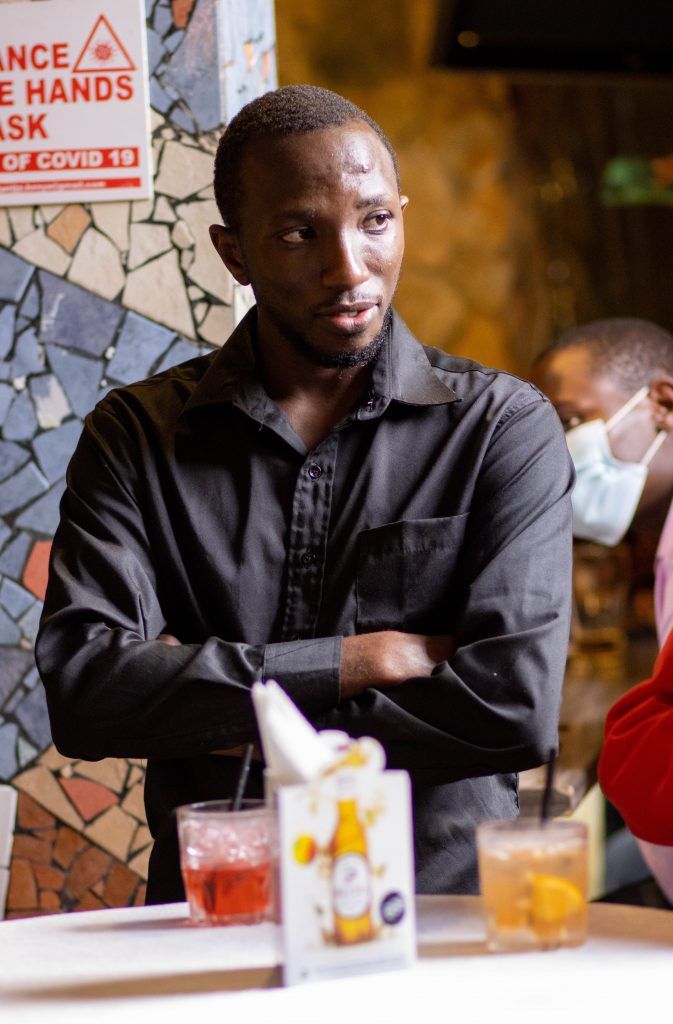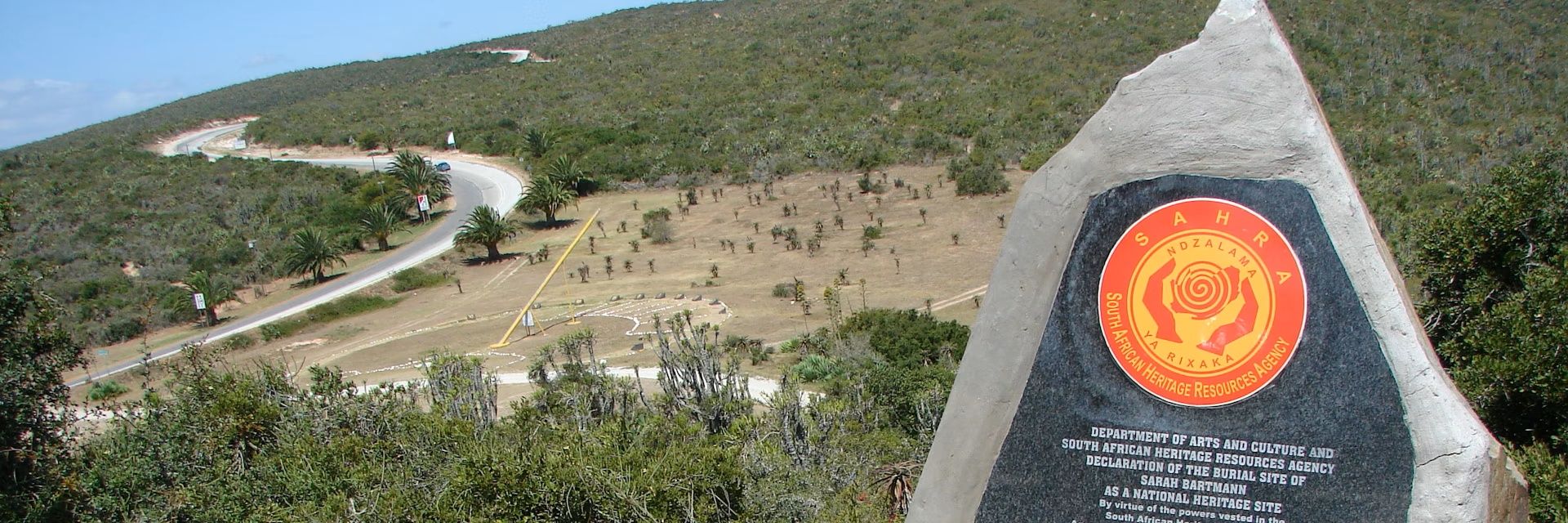In school, I recall we were reminded frequently that living things, namely plants and animals, need air, water and warmth to survive. Recently, visiting a special friend, she pointed at her flourishing potted plants sitting outside her door, one of which was creeping snakelike up the wall, coiling around the helpful rope she had tied to give the plant something to attach itself to. While the plant seemed as if it had considered peeping into her bathroom through the window, it had changed its mind and was now reaching out to the sun, seeking the sustenance of sunlight. Before me, I realised was my primary school lesson in corporeal form.
A few days later when thinking about the concept of poverty of dignity in urban planning, I could not help remembering the plant. After all, aren’t we humans, like that plant, dependent on sunlight, air, water and nutrients? A human who gets too little sunlight will lack vitamin D and will consequently deteriorate in both physical and mental health. When you are feeling down, the chances of your mood improving are increased when you draw your curtain and let the sunlight and air into the stuffy, darkened room; even better, go out for a walk and taste the nourishing air and life-giving sun directly. There is a reason a cheerful disposition is called sunny.
This brings me to the matter of urban planning that does not prioritise the mental and physical wellbeing of people. In his 7th State of the Nation Address, our former President Uhuru Kenyatta spoke eloquently about the concept of poverty of dignity: “Let me begin my report to you by discussing the ‘poverty of dignity’ visited upon our urban poor. It is, indeed, a shame that, almost sixty years after independence, a majority of our urban dwellers live in a ‘dignity poor’ environment. Their sanitary conditions are inhumane, and their habitations are deplorable.”

Habitations that do not factor in the dignity of human beings may feature: bad drainage, absence of piped water, small windows or poor ventilation, tall buildings without elevators, no privacy, leaking roofs, no consideration for the handicapped, and so on. Why do some neighbourhoods have good drainage systems while others are neglected, with the unmistakable foul stench of sewage normalised? Why do some people deserve basic dignity while others are subjected to conditions that deny them their humanity?
We live in a country where people grind themselves to dust for decades in the faint hope that one day they will have enough money to move into a peaceful suburb or retire to the fresh and nourishing rural areas, away from the bad air, the noise pollution, and the constant threat of violence from fellow city dwellers who are ever on edge. Matters are not made better by the rising cost of living, expensive healthcare and exorbitant education, especially at a time when taxes are continuously being heaped on citizens’ sunken backs.
Part of the reason violence is rife in the city, in addition to the scarcity of resources, is this dignity-poor environment. If our environment denies us dignity, how can we be expected to accord each other dignity? Creating in us the feeling that we have nothing to lose, since we don’t, the environment enables us to give vent to our base instincts. As a result, we become robots easily manipulated by politicians who understand our programming and the buttons to press when they want us to release our pent-up frustrations, anger and hatred of the people we consider privileged.
Sometimes the politicians turn us against each other, pointing out the different ways we are privileged or entitled in this environment. For example, in Nairobi’s slums in the lead-up to the 2007 post-election violence, politicians urged their supporters not to pay rent because the landlords all belonged to the “other side”. Consequently, criminal gangs from the other side turned the slums into war zones.
Guarding the country against future eruptions of violence, therefore, must entail a holistic approach aiming to embed dignity in the lives of all citizens regardless of their income levels. That should begin with a deliberate policy on building and maintaining public amenities and public spaces, infrastructure, and so on. In addition to obvious things like street lights, good drainage and garbage disposal, our communities should have playgrounds for our kids, community halls, libraries, public parks, and so on. Additionally, the government should prioritise affordable healthcare, affordable education, affordable housing, food security, job creation, and security.
Someone pointed out that the difference between rural poverty and urban poverty is the dehumanising nature of the latter. While rural poverty comes with social protection from the local community, urban poverty is accompanied by a sense of isolation and low self-esteem. While a poor person in the rural areas might be living on their own land which they can farm for food, destitute people in the city might find themselves sleeping under a bridge because they cannot afford rent and surviving on discarded scraps of food, not unlike a stray animal.
While the rural areas are rooted in the firm identity provided by tradition, the city is a rootless animal where people lose themselves and cultures that reflect our poverty of dignity begin to crop up. The disrespectful slang quickly morphs into a language that has our hatred of self and our fellows baked into it. Children grow up in this environment, calling each other unprintable names, glorifying crime and simultaneously worshipping and disdaining affluence. The music that emerges from such an environment invariably dehumanises men, women and children, smashes taboos, disrespects elders, lionises despicable characters, celebrates violence, demonises government agencies like the police, and expresses a nihilistic attitude in general.
Clearly, failing to bake human dignity into urban planning and government policy has very dire consequences for society at large and may even lead to threats against national security. The maandamano last year were only prevented from erupting into a full-blown proletariat revolution by the clever strategy of gamification of the protests employed by Raila Odinga to ensure the outrage did not turn into anarchy as happened in 2007. What happens next time when it’s not a masterful driver at the wheel, when the people take matters into their own hands or when a less scrupulous leader bent on manipulating class struggle for his own Machiavellian ends leads the charge?
As one of my favourite rappers Domani Munga eerily, presciently sang, “Haina noma, huna namna. Tuseme "bora uhai," haina maana. Achia noma Maulana, life kwenye streets kakiumana. Juu kuna siku youths wataungana."





